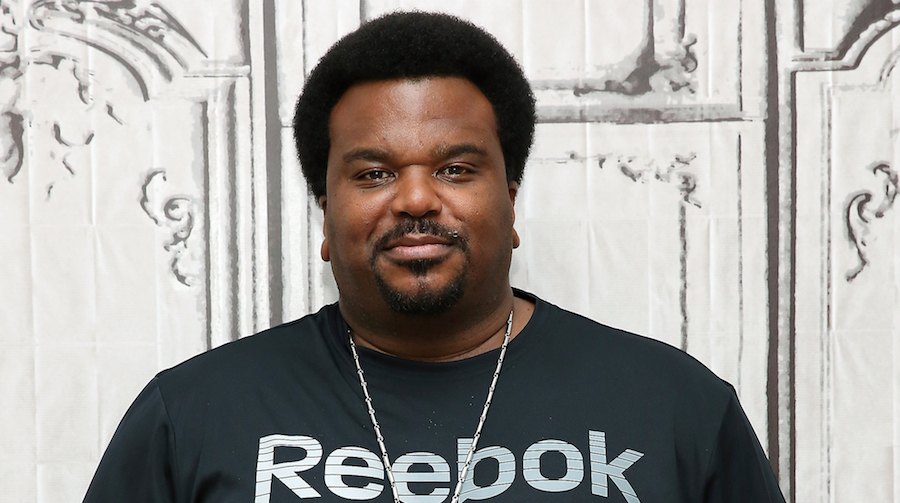Craig Robinson isn’t your typical comedic actor who goes serious. In “Morris from America,” he plays a father and widower who’s dragged his eponymous teen son (Markees Christmas) to Heidelberg, Germany. The movie’s about Morris, especially his crush on a slightly older local girl (Linda Keller). But it’s also about their unusual father-son-relationship, which is part filial, part friendly. Robinson won a Jury Prize award at Sundance for his turn, which is how the “Office,” “Hot Tub Time Machine” and “This is the End” star wound up on “Mr. Robot.” Did you have your feelers out for something more on the drama side before this showed up? Still, it is a funny drama. Your scenes with Markees Christmas, which is an amazing name… What is it like sharing a movie with a kid? RELATED: Review: “Morris from America” is a subtle and funny look at being an outsider How are kids today, do you think? Social media and gadgets might not have destroyed them. It might make them more focused, more performative. You shot some of this in Heidelberg, Germany, and some in Berlin. It’s a city where they party all night. There’s a saying there that at if you see someone out at 6 a.m., you don’t know if they’re going to work or going home. How is your German? Since this film and the Sundance award you won, have you been getting more and more serious scripts and offers? Have you ever been a part of something that secretive? How have you adjusted to doing that kind of show?
I knew I had ambition, but there was no going after it. It was organic. It was challenging because it had a “Can you pull this off?” effect to it. But I also like this character. I liked his music; I liked the way he talked to his son. I’d never seen anything like their relationship, which towed the line between friendship and fatherhood. I liked the way he talked, period. His vernacular fit my rhythm.
It’s dope. Either a stripper or a porn star. [Laughs]
It was based on mutual respect. I was a lover of his YouTube videos; he loved some of my movies. We just clicked. It was a big brother relationship. He couldn’t have been more professional, cooler — just a great kid, taking in what the world is handing him with a big smile, loving it.
It’s funny: Kids are so prepared. When I had my TV show, “Mr. Robinson,” there were kids on the show. When we auditioned them, it was amazing. Every kid that came in, it was like, “Who do we choose?” It would be the adults who came in and were like, “I just got this yesterday!” There was always something. I enjoy working with kids, when they get a little older. I did act with a six-year-old once, and he was like, “I don’t feel like it!” “OK, see all these people here? We’re waiting on you.” But 10 and up, they’re great.
Pokemon Go, man! I mean, I don’t even know why I said that. [Laughs] That’s something I’ll never, ever try. I’ll never even attempt that. It’s one thing to sit and play Centipede or Pac-Man. But now they’re going in the streets.
Berlin will be getting a visit from me again.
They rave. It’s awesome. I don’t even rave here. Used to! But something about being somewhere else, it’s like, “Oh, I can act crazy!”
I just did the lines I had. It was funny, because I was playing a soccer coach, so they had me on the field. The other coaches are going, “Come on! Get the ball!” I was just yelling my lines, which were [starts clapping], “My wife is dead! Come on! My fingers are too fat to take the ring off!”
“Mr. Robot.” I hadn’t seen it, so when I got the call I watched it. I was like, “OK, you show me how you’re going to fit me in there. We’ll see.” It was so secretive. They didn’t even tell me what my role was. They gave me a description of my character, but I didn’t find out what the role was till later.
Sure, but nothing of this nature, where people are sending in theories and trying to catch you [with a spoiler]. You’ll just be talking to someone normally and all of a sudden they’re like, “Are you an orderly at a mental hospital?” “What are you talking about?”
It’s a learning experience. It’s different than on a comedy set. I was bringing the comedy in between takes, but it’s real over there. I had to be like, ‘Maybe I shouldn’t be out here joking around. They want to keep it intense.’
Craig Robinson on ‘Morris from America,’ dramas and Pokemon Go

Getty Images
Follow Matt Prigge on Twitter @mattprigge























